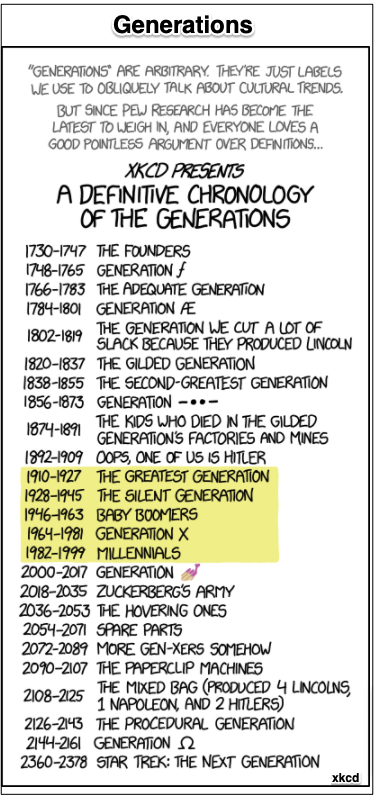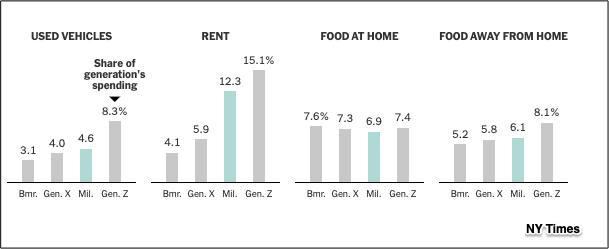What you spend can depend on your generation.
Looking further back and ahead than most researchers, xkcd defined the generations:

Where are we going? Knowing our generation, we can look at spending and inflation.
Generational Spending
The Dates
This was the clearest summary I could find:

The Spending
Generational spending is somewhat predictable. The Boomers, the older generation, spend more on health care while Gen Z, ages 10-25, spends more on education. Meanwhile, for people in their 20s and 30s, gasoline, up 40 percent during the past year, is one reason for higher transportation spending.
Reflecting life cycle changes, the upward or downward movement of the graphs for each good or service was especially interesting:

Our Bottom Line: Inflation
According to the most recent CPI report, prices for all items from January 2021-January 2022, are up 7.5 percent. However, with used car and light truck prices up 40.5 percent, Gen Z feels the hit the most. Not nearly as much but also historically high, the 12 month price increase for food at home was 7.4 percent and food away, 6.4 percent. Meanwhile, rent, close to 3 percent is going up at a slower rate for the 12 months but is a large amount.
Consequently, below you can see that Gen Z has the biggest inflation exposure:
Typically, generations that have inflation in their past, are most concerned about it in the future. That means that Gen Z will join my cohort, the Baby Boomers, as inflation worriers:

My sources and more: While I have always gone to Pew in past econlife posts, this time the best generations summary was at Beresford Research. From there, the NY Times facts were the ideal complement as was the San Francisco Fed’s look at rent and the February CPI report. And finally, do read this Washington Post opinion column. Rather convincingly, it says that generation labels are meaningless. The reason? The groups are too varied to be characterized by one identity.







